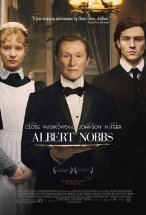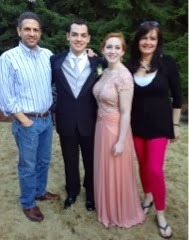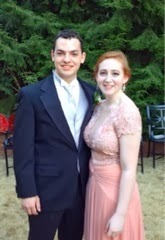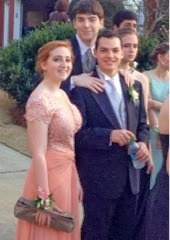Caroline Friday's Blog, page 868
March 10, 2014
Book Review - Redeeming Love
 I was introduced to this wonderful story about a decade ago by my neighbor who, after finishing it, literally ran down the street hollering (that’s southern for “yelling”) at the top of her lungs that I had to read this book and make it into a movie. Being a Christian friend and neighbor, and a screenwriter, I thanked her for it – I had never heard of Francine Rivers or the CBA at that time. Was it some sort of Christian government agency? Anyway, the title and the fancy, romantic cover put me off initially, so the book sat on my night stand for a full year! And then one evening, for some reason, I picked it up, not expecting much, until I started reading the first chapter. I think I finished the entire book in about three long sittings, cried a river of tears, gave it to my husband, friends, bought copies for all of my bible study ladies, my sister, and even my nonbelieving Dad (who hasn’t read it yet)…you get the picture. And I became one of Francine Rivers’ number one fans, having read all of her novels to date.
I was introduced to this wonderful story about a decade ago by my neighbor who, after finishing it, literally ran down the street hollering (that’s southern for “yelling”) at the top of her lungs that I had to read this book and make it into a movie. Being a Christian friend and neighbor, and a screenwriter, I thanked her for it – I had never heard of Francine Rivers or the CBA at that time. Was it some sort of Christian government agency? Anyway, the title and the fancy, romantic cover put me off initially, so the book sat on my night stand for a full year! And then one evening, for some reason, I picked it up, not expecting much, until I started reading the first chapter. I think I finished the entire book in about three long sittings, cried a river of tears, gave it to my husband, friends, bought copies for all of my bible study ladies, my sister, and even my nonbelieving Dad (who hasn’t read it yet)…you get the picture. And I became one of Francine Rivers’ number one fans, having read all of her novels to date.For those of you who know the story, it is a nineteenth century, wild-west version of Hosea the prophet who was called by God to marry a prostitute, Gomer, and stay faithful to her, despite her adulterous behavior—even purchasing her out of self-induced bondage and servitude. Likewise, in Redeeming Love, Michael Hosea, a gentle, yet ruggedly handsome man of God, is called to marry a local prostitute, known only as Angel. Angel suffers from a long life of abuse that began when she was just a child. Beautiful and captivating, yet emotionally scarred beyond repair, she is the last woman a man like Michael Hosea would desire to marry, but out of obedience to God, he agrees. Sparks fly as Angel’s emotional state fractures under the pressure of Michael’s unconditional love—something she has never known—and when the demons from her past come back to suck her back into a life of prostitution. It is the epitome of the Christ story, with all the romance, passion, emotional trauma, evil, violence, betrayal, conflict, twists and turns that a major motion picture needs to be a success.
As a Christian screenwriter, I have to say that adapting this story into a film would be an absolute dream of mine! I have visualized many of the scenes in my head for so long, that if given the opportunity, I could probably knock out a 120 page script in no time. As of about a year ago, the movie rights were held by a major Hollywood producer who is a Christian and just released a summer blockbuster that happens to be a favorite of my thirteen year old son. No hints, but the leading star in this blockbuster would be the same as my first choice to play Michael Hosea: a handsome, supremely talented Aussie who can send many a lady’s heart aflutter. I should know as I first saw him on the London stage years ago as Curly in Oklahoma – and from the front row where the view was most optimal. Hugh Jackman is his name, and he would be PERFECT as Michael Hosea. Can’t imagine anyone else to be honest, especially after seeing him in Australia with Nicole Kidman recently. And as for Angel, my first choice would be Katherine Heigl, but Angelina Jolie would be fantastic as well. Both of them have the beauty, talent and emotional range, not to mention, Hollywood A list reputation to carry the film.
I’m sure the delay in getting this story produced is the same bump in the road so many other independent producers stumble across: coming up with the money. It is expensive to make a quality, theatrical film which will attract box office talent and secure proper distribution for an audience that extends beyond the Christian moviegoer. However, there is no reason this story couldn’t attract a secular audience, particularly with the amount of conflict in the romance between Michael and Angel and the return of her abuser, Duke, who is a deliciously, colorful villain. Think Christian Slater. Ok, now I’ve just added another fistful of millions to the budget. But with the right script, I’m convinced a number one movie could be made, going all the way to the Academy Awards – to Best Picture. Wouldn’t that be magnificent?! And it all begins with the right script - and the right screenwriter, of course.
Published on March 10, 2014 21:35
Movie Review - North and South
 With slim pickings at the theater, I decided to review one of my favorite TV miniseries from the 80s, North and South, based on the Civil War novels by John Jakes. Fortunately, a recent outing at Walmart landed me in the DVD aisle where I stumbled upon the entire three part collection (approximately 1400 minutes!) for a mere twenty dollars. My husband and I have been glued to the television ever since, engrossed in a compelling, action-packed drama that borders on the melodrama at times, but thoroughly entertains. I especially liked seeing Patrick Swayze, one of my favorite actors, with his long hair and Civil War regalia, sweeping the gorgeous Leslie-Anne Down off her feet. He was a wonderful actor and so romantic. I have to gulp down a sob just writing this.
With slim pickings at the theater, I decided to review one of my favorite TV miniseries from the 80s, North and South, based on the Civil War novels by John Jakes. Fortunately, a recent outing at Walmart landed me in the DVD aisle where I stumbled upon the entire three part collection (approximately 1400 minutes!) for a mere twenty dollars. My husband and I have been glued to the television ever since, engrossed in a compelling, action-packed drama that borders on the melodrama at times, but thoroughly entertains. I especially liked seeing Patrick Swayze, one of my favorite actors, with his long hair and Civil War regalia, sweeping the gorgeous Leslie-Anne Down off her feet. He was a wonderful actor and so romantic. I have to gulp down a sob just writing this.The story centers on the friendship between Orry Main (Swayze), a southern plantation owner from South Carolina, and George Hazard (played by John Read in a great performance), the wealthy owner of an iron foundry in Pennsylvania. They meet at West Point before the Mexican War and develop a bond closer than brothers, much like David and Jonathan in the Bible. At West Point, they cross paths with the evil Elkanah Bent (played by Philip Casnoff), a character one loves to hate. Casnoff’s southern accent is exaggerated at times, common for American actors with Yankee roots who think we southerners are full of twang, but it works. He brings a great deal of conflict and excitement to the story as his hatred for Orry and George fuels a vendetta that leads to heartache and tragedy.
As time passes and the abolitionist movement takes hold, Orry and George’s friendship suffers. George cannot condone the South’s use of slavery, and Orry will not tolerate a northerner criticizing his family’s way of life. George takes over his family’s business in Philadelphia and marries the lovely Constance, while Orry runs Mont Royal, his family’s plantation in South Carolina, and pines over the beautiful Madeline Fabray (Leslie Anne-Down). I have to say that I haven’t seen a prettier face on the television screen in a long time—Down is a stunningly gorgeous woman with the looks of Elizabeth Taylor and a young Vivian Leigh.
Sadly, Madeline and Orry are ill-fated lovers who cannot be together, because of her father’s evil schemes. Thinking Orry is dead somewhere in Mexico, Madeline marries an evil, abusive man from a nearby plantation (David Carradine), only to discover on her wedding day that Orry is very much alive. Orry pledges to never love another woman, and he holds true to his word, despite the circumstances. Isn’t that romantic? Yes, there may be a bit of adultery, but this is Hollywood and it is John Jakes.
As for pretty actresses, there certainly is no shortage of old television and soap stars from the 80s in this series. For those of you with a fondness for Genie Francis, who played Laura from General Hospital, you’ll be pleased to know you can see her in a hundred different hoop skirts and bonnets, playing the lovely and sweet Brett Main, Orry’s sister. Think Melanie Wilkes from Gone With the Wind with a bit more spine. You’ll also see Linda Evans, Morgan Fairchild, more of the cast from Dallas, Lee Horsley, and even old Hollywood actors like Gene Kelly, Olivia de Havilland, and Lloyd Bridges. Even Wayne Newton shows up as a really nasty Confederate prison warden. But my two favorite are Kristie Alley, who plays George’s sister, Virgilia, a stanch abolitionist who marries a black slave, and Terri Garber, who plays Orry’s sister, Ashton. Ashton is a souped-up Scarlett O’Hara-type with a sadistic streak a mile wide. While she borders on comical at times, with her over-the-top antics, she does add quite a bit of spice to the story. Some of it is racy for television, especially from thirty years ago, so be prepared.
By now you may be thinking I am absolutely desperate for entertainment, but be assured that this is a wonderful miniseries that still holds up almost three decades later. The acting is great, the story moving, the romance is strong and believable, and according to my history buff husband, the authenticity of Civil War events is accurate. Just the romance between Orry and Madeline is enough to satisfy, but the other characters (like Charles Main, Orry’s cousin) and their trials during a very tumultuous time in our nation’s history will stay in your conscious for days afterwards.
I love the feeling of going back in time and experiencing the lives of an entire generation of people who suffered greatly but overcame hardship, holding firmly to their faith. If that’s what over a thousand minutes of a TV miniseries will do to a person, then it was time well spent! I look forward to sharing North and South with my children over the holidays. I have no doubt it will become a family favorite.
Published on March 10, 2014 21:23
Man of Steel
 I’ve always known Superman was an allegorical story of Jesus but never expected Hollywood to emphasize the Christ-like components of plot and theme in such a clear and distinct way as portrayed in Zack Snyder’s version, Man of Steel. What an exciting surprise for a Christian movie-goer in this day and age! My husband and I looked at each other in astonishment when Clark Kent (played by Henry Cavill) wrestles over his calling and the timing in which to reveal himself to the world, ultimately prophesizing his rejection as savior of mankind. And then when he is revealed as this amazing “super man,” he announces that he has been on earth for 33 years.
I’ve always known Superman was an allegorical story of Jesus but never expected Hollywood to emphasize the Christ-like components of plot and theme in such a clear and distinct way as portrayed in Zack Snyder’s version, Man of Steel. What an exciting surprise for a Christian movie-goer in this day and age! My husband and I looked at each other in astonishment when Clark Kent (played by Henry Cavill) wrestles over his calling and the timing in which to reveal himself to the world, ultimately prophesizing his rejection as savior of mankind. And then when he is revealed as this amazing “super man,” he announces that he has been on earth for 33 years. There are many other such Jesus analogies, but the most obvious is a scene in a church where Clark professes his doubts to his pastor while a stained glass image of Jesus kneeling before the Father is prominently displayed in the background – a Garden of Gethsemane moment! The pastor tells him that sometimes one must have faith before there is trust. Amazing to see this Gospel message in a major Hollywood tent pole film—and written by a Jewish man, David S. Goyer. Just these few scenes and lines of dialogue make this movie a rarity in today’s box office.
Even though the plot meanders a bit and is somewhat confusing, I highly recommend this movie. I loved how the story is flipped on its head, starting with Lois Lane (played by Amy Adams) finding Superman’s wintery lair where the hologram/soul of his dead father, Jor-el (played by my favorite, Russell Crowe), instructs him on the ways of Krypton. There, Clark saves her life from a lethal injury, thus revealing his true identity to her at the beginning of the film, which makes much more sense to the viewer. This Lois is less quirky than the other Lois Lanes we have seen, and smarter as well, playing an important hand in the salvation of Earth. The ending of the film is where most Superman stories start—with Clark donning a pair of hipster black frames and working for The Daily Planet alongside Lois. A nice variation in story structure.
For those who are fans of Christopher Nolan’s Batman flicks, you will find the same dark tone and Gotham-type atmosphere in this film. Nolan shares credit as scriptwriter and his influence is certainly felt. I wasn’t sure if I would like the darkness in this version, but it worked. Some of the campy elements from the older movies (like the prominent S on the front of the suit) are explained as a natural part of the plot instead of being contrived—although there is still no explanation for the blue suit and red cape. In addition, there is quite a bit of backstory to the demise of Krypton which allows for greater development of the motivation behind the antagonist, General Zod (a scary-looking Michael Shannon), and his evil cohorts. I won’t bother going into the plot detail in this review, because it is somewhat complex, but fortunately the labyrinth of twists and turns does not detract from being entertained.
At every turn, there are Christ references, such as the taking on of sins, dying for mankind, going down into the pit of Hell to vanquish the enemy, all of which are played out very nicely. I think a second viewing would reveal even more Jesus references which could make for a nice Bible discussion. There are at least two encounters between Clark (suited up as Superman) and Lois where he rescues her as she is hurtling to earth, sweeping her up into his arms before she crashes to her death. She clings to him and then he gently and lovingly sets her on safe ground. Isn’t that a beautiful picture of Jesus? And then the look of affection in his expression as she gazes at him with gratitude brought tears to my eyes, and my husband’s. The world needs to see the loving, caring Jesus and not the harsh, mean and judgmental savior that religion portrays. As the Apostle Paul says in Romans 2:4, it is the goodness of God that brings man to repentance.
I also liked the relationship Clark has with his earthly parents in Smallville, Kansas, played by Kevin Costner and Diane Lane. Costner espouses great wisdom when needed, coaching Clark to delay revealing himself to the world until the right time. Lane is sweet and loving as the mother who knows her son doesn’t really belong to her and, therefore, harbors fear that one day the world will take him away. It is a nice picture of Mary and Joseph caring for the Son of God who had a calling greater than anything they could explain or understand.
As I watched this movie in a very packed theater, I noticed that people seemed to be restless and uncomfortable during the spiritual scenes. My husband didn’t notice this, but I sensed the Holy Spirit stirring in the air, convicting some to take a deeper look at the parabolic truths being presented, even if in a Hollywood movie. Our Lord can use any thing and any person to send the message of salvation to His yet unborn children who are still trapped in the world, living out their days wondering why they walk around with a giant hole in their heart. It is because it is waiting to be filled by Him. I pray there were many in that theater who will seek out the Truth and find their Savior before the dooms-day scenarios portrayed in so many summer blockbusters become a reality.
Published on March 10, 2014 21:17
Book Review - It's Not About Me!
 This is a great read for mature teens and young adults waging the war of staying sexually pure until marriage. As an adult and mother of three teenaged children, it brought home the terrific pressure the world puts on young people to give way to the momentary pleasures of sin, particularly Christian teens and young adults, some of whom are children of pastors and bible study teachers!
This is a great read for mature teens and young adults waging the war of staying sexually pure until marriage. As an adult and mother of three teenaged children, it brought home the terrific pressure the world puts on young people to give way to the momentary pleasures of sin, particularly Christian teens and young adults, some of whom are children of pastors and bible study teachers! In this story, sweet and innocent Annie fights off the advances of her high school love, Tony, who is also an avid churchgoer and son of the local pastor. Tony is handsome and dreamy, but has succumbed to the worldly idea that “waiting” isn’t realistic, particularly with the girl he loves and plans to marry. Sound familiar? Despite Annie’s resistance, she caves under the pressure of an enormous diamond engagement ring – one owned by his grandmother. But, as fate would have it, the night Annie plans to give herself to him, she is brutally attacked and maimed and left for dead – a victim of robbery (you guessed it – over that precious ring!) Tony’s guilt for not having been there to protect her will not allow him to forgive himself or face her in her time of need; he instead turns to alcohol to assuage the pain in his heart.
Enter Tony’s older brother, Dan, who is equally handsome and dreamy and who has loved Annie from afar for several years. With Tony going AWOL, he now becomes the friend she needs and helps her recover from her injuries, both physically and spiritually. Dan tells her she is beautiful and treats her with tenderness and affection without the pressure of a sexual relationship looming in the background. Of course, when Tony comes to his senses and wants to resume his romance with Annie, she is torn. Was what they had real love? Or has Dan showed her something far deeper and richer: a love that comes only by first having a love relationship with the Savior, Jesus?
This book is a quick read and makes a great ministry tool. The characters are wonderful and realistic and are easy for young women and men alike to relate to. I enjoyed it as an adult – I especially liked Dan, who is the epitome of the romantic hunk: handsome, buff, smart, sweet, and saved, with an unwavering moral compass. For parents of teenaged girls, you will be convicted to pray your sweet, innocent daughter rejects the Tonys of the world and waits for her God-ordained Dan. And for those of you with teenaged sons, pray he becomes the Dan (and not the Tony!) to his Annie, who God has prepared especially for him.
Published on March 10, 2014 21:11
Movie Review - Great Expectations
 This month, I dug into my Netflix account instead of opting to review the latest superhero or dooms-day flick. I’ve been a bit disappointed with this summer’s Hollywood fare, so I haven’t ventured to the theater as much as I normally do this time of year. But thankfully, the English and their BBC productions of classic stories are always there to entertain, never falling short of excellent. Superbly written, directed, and usually (but not always) devoid of gratuitous sexual content and foul language, they stand the test of time, appealing to all generations. Charles Dickens’ Great Expectations is one such story that has been dramatized in abundance, with the most recent being a 2012 theatrical release starring Ralph Fiennes and Helena Bonham Carter (yet to screen in the US for some reason). The version I stumbled upon is a 2011 BBC mini-series which aired on Masterpiece Classic earlier this year. I was delighted to find that it gives a more complete rendition of the book than the other adaptations produced over the years. Starring Douglas Booth, Great Expectationschronicles the life of Pip, a poor orphaned boy whose life abruptly changes when unexpected fortune and opportunity come his way via an anonymous benefactor. Booth is great in the role and brings his smoldering good looks to the production, looking more like a Ralph Lauren model than a new, up-and-coming British actor. Set in nineteenth century England/London, the movie evokes a dark, Dickensian tone which includes a cast of unusual characters with even more unusual names such as Magwitch, Havisham, and Pumblechook. Great acting from Ray Winstone, Gillian Anderson, and Jack Roth (Tim Roth’s son) adds to the production, as does the humor from Claire Rushbrook who plays Mrs. Joe. I never realized how tragic and sad the story is until watching this version. I remember reading the book years ago, but I didn’t pick up on the insidious evil from Mrs. Havisham until Gillian Anderson put flesh on her bones. Havisham is probably one of the literary world’s most wicked antagonists, striking an appall to the heart with her moth-eaten wedding gown and rat-infested wedding cake. I shudder to imagine how Dickens came up with such a character. The themes of loyalty, love, revenge, and forgiveness touch on Christian truths that are parabolic of the Lord’s teachings. When we first meet Pip, he is a kind-hearted, abused little boy who extends grace to an escaped convict, Magwitch (played by Winstone). At first, Magwitch appears to be a vicious felon but later redeems himself as a man unfairly condemned. He disappears quickly from the story but reappears later when the loose ends are nicely tied up. As Pip later discovers, the mercy and graciousness he showed Magwitch is instrumental in setting his life on a brand new course. At the same time, Pip’s desire for love and a better life make him the perfect victim for Miss Havisham (played in a very creepy way by Gillian Anderson). Miss Havisham is a wealthy lady who lives in a dusty, cob-web infested mansion, living out her days in a bizarre, insane stupor. Jilted at the altar years ago, Miss Havisham is grief, anger, bitterness, and revenge personified. She walks around barefoot looking as pale as a ghost and speaking in breathy half sentences that are almost zombie-like. Her hair is stark white and hasn’t been brushed in years and she still wears her dirty wedding gown—can’t imagine the smell that would come from such an existence! And to make matters worse, the dining room is covered in dust and filth, anchored by a rotting three tiered wedding cake. I remember being terrified of this lady when I was a young girl. In her quest for revenge, Miss Havisham adopts the beautiful Estella (played by Vanessa Kirby) and raises her to be a lovely, genteel lady with a heart of stone. Havisham’s goal is to trick some well-meaning young man into falling in love with Estella, only to purposefully break his heart in the process. This is where Pip fits into her evil plan. She invites him to the house to spend time with Estella, nurturing a friendship between the two. But then, at the moment she sees that the affection has blossomed into something more, she sends Estella off to London to find a respectable gentleman as a husband. Initially, Pip believes Miss Havisham has his best interests at heart but soon learns he was mistaken. The Havisham character is a wonderful depiction of an individual who harbors bitterness and anger in their heart, unable to forgive. Unforgiveness is like a poison, rotting the soul until it corrodes the body, bringing with it age, disease, and ultimately death. Jesus taught on the dangers of unforgiveness and the power and freedom that forgiveness brings. But sadly, like Miss Havisham, many make a different choice, desiring to wallow in grief and pity until they are destroyed. Pip understands this and finally confronts Havisham when he comes of age. As he so aptly explains, if she had allowed Pip and Estella to love each other, she could have filled her grand home with laughter and love. This cold, hard truth is more than Havisham can bear and is the beginning of her eventual demise. As so many have come to learn, the schemes of an evil man can never suppress the power of true love. Contrary to Havisham, Magwitch chooses to forgive others for what was taken from him. Instead of using Pip to exact revenge, he repays Pip for his kindness and desires to enrich his life with finances and opportunity. Magwitch learns to love and accepts his fate with peace in his heart, so unlike Miss Havisham. Magwitch sacrifices his own interests for the greater good, whereas Havisham embraces her doom with open arms, not caring who she takes with her. It makes one sad to realize there are many figurative Miss Havishams in the world hurtling toward their destruction, not knowing that death will not provide relief—it will only be the beginning of a greater, eternal misery. If they could only know the love of the Savior and the forgiveness that is available, free of charge, they could be delivered like Magwitch, no longer held captive by sin. It is a truth Pip and Estella come to realize in it fullness, enabling them to embark on a new life of love and freedom.
This month, I dug into my Netflix account instead of opting to review the latest superhero or dooms-day flick. I’ve been a bit disappointed with this summer’s Hollywood fare, so I haven’t ventured to the theater as much as I normally do this time of year. But thankfully, the English and their BBC productions of classic stories are always there to entertain, never falling short of excellent. Superbly written, directed, and usually (but not always) devoid of gratuitous sexual content and foul language, they stand the test of time, appealing to all generations. Charles Dickens’ Great Expectations is one such story that has been dramatized in abundance, with the most recent being a 2012 theatrical release starring Ralph Fiennes and Helena Bonham Carter (yet to screen in the US for some reason). The version I stumbled upon is a 2011 BBC mini-series which aired on Masterpiece Classic earlier this year. I was delighted to find that it gives a more complete rendition of the book than the other adaptations produced over the years. Starring Douglas Booth, Great Expectationschronicles the life of Pip, a poor orphaned boy whose life abruptly changes when unexpected fortune and opportunity come his way via an anonymous benefactor. Booth is great in the role and brings his smoldering good looks to the production, looking more like a Ralph Lauren model than a new, up-and-coming British actor. Set in nineteenth century England/London, the movie evokes a dark, Dickensian tone which includes a cast of unusual characters with even more unusual names such as Magwitch, Havisham, and Pumblechook. Great acting from Ray Winstone, Gillian Anderson, and Jack Roth (Tim Roth’s son) adds to the production, as does the humor from Claire Rushbrook who plays Mrs. Joe. I never realized how tragic and sad the story is until watching this version. I remember reading the book years ago, but I didn’t pick up on the insidious evil from Mrs. Havisham until Gillian Anderson put flesh on her bones. Havisham is probably one of the literary world’s most wicked antagonists, striking an appall to the heart with her moth-eaten wedding gown and rat-infested wedding cake. I shudder to imagine how Dickens came up with such a character. The themes of loyalty, love, revenge, and forgiveness touch on Christian truths that are parabolic of the Lord’s teachings. When we first meet Pip, he is a kind-hearted, abused little boy who extends grace to an escaped convict, Magwitch (played by Winstone). At first, Magwitch appears to be a vicious felon but later redeems himself as a man unfairly condemned. He disappears quickly from the story but reappears later when the loose ends are nicely tied up. As Pip later discovers, the mercy and graciousness he showed Magwitch is instrumental in setting his life on a brand new course. At the same time, Pip’s desire for love and a better life make him the perfect victim for Miss Havisham (played in a very creepy way by Gillian Anderson). Miss Havisham is a wealthy lady who lives in a dusty, cob-web infested mansion, living out her days in a bizarre, insane stupor. Jilted at the altar years ago, Miss Havisham is grief, anger, bitterness, and revenge personified. She walks around barefoot looking as pale as a ghost and speaking in breathy half sentences that are almost zombie-like. Her hair is stark white and hasn’t been brushed in years and she still wears her dirty wedding gown—can’t imagine the smell that would come from such an existence! And to make matters worse, the dining room is covered in dust and filth, anchored by a rotting three tiered wedding cake. I remember being terrified of this lady when I was a young girl. In her quest for revenge, Miss Havisham adopts the beautiful Estella (played by Vanessa Kirby) and raises her to be a lovely, genteel lady with a heart of stone. Havisham’s goal is to trick some well-meaning young man into falling in love with Estella, only to purposefully break his heart in the process. This is where Pip fits into her evil plan. She invites him to the house to spend time with Estella, nurturing a friendship between the two. But then, at the moment she sees that the affection has blossomed into something more, she sends Estella off to London to find a respectable gentleman as a husband. Initially, Pip believes Miss Havisham has his best interests at heart but soon learns he was mistaken. The Havisham character is a wonderful depiction of an individual who harbors bitterness and anger in their heart, unable to forgive. Unforgiveness is like a poison, rotting the soul until it corrodes the body, bringing with it age, disease, and ultimately death. Jesus taught on the dangers of unforgiveness and the power and freedom that forgiveness brings. But sadly, like Miss Havisham, many make a different choice, desiring to wallow in grief and pity until they are destroyed. Pip understands this and finally confronts Havisham when he comes of age. As he so aptly explains, if she had allowed Pip and Estella to love each other, she could have filled her grand home with laughter and love. This cold, hard truth is more than Havisham can bear and is the beginning of her eventual demise. As so many have come to learn, the schemes of an evil man can never suppress the power of true love. Contrary to Havisham, Magwitch chooses to forgive others for what was taken from him. Instead of using Pip to exact revenge, he repays Pip for his kindness and desires to enrich his life with finances and opportunity. Magwitch learns to love and accepts his fate with peace in his heart, so unlike Miss Havisham. Magwitch sacrifices his own interests for the greater good, whereas Havisham embraces her doom with open arms, not caring who she takes with her. It makes one sad to realize there are many figurative Miss Havishams in the world hurtling toward their destruction, not knowing that death will not provide relief—it will only be the beginning of a greater, eternal misery. If they could only know the love of the Savior and the forgiveness that is available, free of charge, they could be delivered like Magwitch, no longer held captive by sin. It is a truth Pip and Estella come to realize in it fullness, enabling them to embark on a new life of love and freedom.I’m sure there are many more spiritual truths a savvy moviegoer can gleam from this classic tale, but this is a good start. Enjoy this powerful story and share it with someone you know who needs a healthy dose of the Gospel message of grace.
Published on March 10, 2014 21:05
Movie Review - Extremely Loud and Incredibly Close
 Extremely Loud and Incredibly Close is one of the strangest movies I have ever seen. I watched it on cable, and if it weren’t for the fact that I was too lazy to reach over the sofa cushion and hit the power button on the remote, I would not be writing this review. But I stuck it out to the end and am glad I did, because the ending certainly delivers.
Extremely Loud and Incredibly Close is one of the strangest movies I have ever seen. I watched it on cable, and if it weren’t for the fact that I was too lazy to reach over the sofa cushion and hit the power button on the remote, I would not be writing this review. But I stuck it out to the end and am glad I did, because the ending certainly delivers. Other than the film, World Trade Center, this movie is the only one I’ve seen that deals with 9/11—I still cannot bring myself to watch United 93. The stories are too sad and the memories of where I was and what I was doing when this tragedy struck are too raw. In particular, I’m still haunted by the image of a handsome young man standing outside the top of the second tower, with flames licking his heels and smoke swirling around him, with nowhere to go but down into death. That was someone’s husband perhaps, someone’s son. Some wife or mother was watching her husband or child dangle on the precipice of destruction. How can this be justified in the mind of that wife or mother? Where is the peace?
This movie deals with that question, opening with a scene where a man is falling from the sky—not in terror or fear—but transcending from a high place to one much lower. Immediately, I knew this 9/11 story would be very different from what I expected.
The setting is New York, and the main character is a little boy, Oskar, whose father (Tom Hanks) dies in one of the twin towers, having left several good-bye voice mail messages on the answering machine. Oskar is sent home early from school and arrives back to his apartment before his mother (Sandra Bullock). Horrified by what he hears in the first several messages, he cannot bring himself to listen to the final one. He hides the answering machine away and replaces it with another identical machine, hoping his mother won’t notice. Oskar can’t bear the fact that his loving father is gone. And yet, his dad’s presence remains with him somehow, leading him on a journey to find a place of peace.
The journey starts with a flashback of a park swing, where Hanks teaches his timid son the joys of swinging high—it starts by pumping the legs until momentum is gained, flying through the air, and then jumping safely to the ground. But Oscar is scared—he doesn’t like heights or being out of control—he doesn’t like the uncertainty of knowing what will happen when he jumps. By now, you may understand why I contemplated turning the movie off. But trust me when I say that all of this pays off in the ending.
As Oskar grieves his father’s death, he ventures through his dad’s things and discovers a collectible blue vase hidden on a closet shelf. When the vase breaks, a key is found in a little envelope bearing the word “Black.” Oskar interprets this as a sign that his father has left him a message and the key unlocks that message. Being a huge fan of scavenger hunts, Oskar goes on an elaborate search for the person with the last name of “Black” who might know the purpose for the key. He starts with the Manhattan phone book and begins making phone calls.
While the notion of a young boy traipsing through New York, knocking on doors of strange people with the last name “Black” may seem far-fetched, it does keep the story moving along. The screenwriters try to justify this bit of fabrication by having Oskar’s mom learn of his plan and visit all of the people ahead of time to tell them what her son is doing and why. That seems even more far-fetched in my opinion, but it is a sweet notion, and doesn’t detract from the power of the ending.
As Oskar’s search lingers, he begins to lose hope. He returns to the swing we have seen in the beginning of the movie and finds a clue wedged underneath the seat planted by his father—it is a folded newspaper clipping with a message circled, encouraging him to never stop searching. Oskar views this as a sign to keep going, but as time goes by and his search leads him nowhere, he becomes even more discouraged. Finally, through happenstance, he turns the clipping over and realizes that it is a phone number that has been circled—the number for the very first person he had called so long ago (Viola Davis). Through her, Oskar comes full circle and discovers the owner of the key. Unfortunately for him, it turns out that it has nothing to do with his dad, but does provides peace for Davis’ estranged husband who seeks closure regarding his own father’s death. The viewer gets the sense that Oskar’s quest will also bring peace and healing to their marriage.
During the search, Oskar befriends an old, mute man (Max Von Sydow) who is staying with his grandmother. The man hasn’t spoken since a childhood trauma during World War II and communicates only through written notes and messages scrawled on his hands. He agrees to accompany Oskar on his quest to discover the owner of the key, and ironically, helps Oskar overcome some of his fears. Eventually, Oskar comes to discover that this man is his grandfather, a man who had abandoned his family years ago because of the pain of having lost his parents during the war.
The movie ends with the touching scene that ties the story together. Through Oskar’s wild and elaborate scavenger hunt, others (like his grandfather) have come to know a peace and acceptance of their loss. But what about Oskar? The viewer isn’t sure until we see a scrapbook he has made of all the people he met during his quest, entitled, "Extremely Loud and Incredibly Close." As he turns the last page of the scrapbook, we see a moveable animation of a man’s body falling from the ground back up into a tall, burning building. It is the body of his father who died so tragically on 9/11. And yet, to Oskar, his father isn’t lost, after all—his memory is still very much alive. Oskar has finally found the peace he’s been looking for for so long.
If just one person who lost a loved one on 9/11—or who has lost a loved one through any other tragedy—watches this movie and receives a bit of peace over how or why it happened, then the film has done its job. I have never lost a family member in that way, but I have witnessed the torment of others who suffer the unbearable loss of a spouse, parent, or child. There are no adequate answers for why these things happen and what could have been done differently to change the outcome. There never is an answer that satisfies, other than an acceptance of the situation with a sense of peace. For those who are born again in the Lord Jesus Christ, that peace comes in knowing that somehow God will make all things work together for our good. It takes an act of steadfast faith to stand firm in this conviction, no matter the horror of the circumstances.
Published on March 10, 2014 20:57
Movie Review - Albert Nobbs
 Glenn Close, one of my favorite actresses, stars in this strange but gripping film about a nineteenth century Irish woman living life impersonating a man. Close was nominated for Best Actress, a well-deserved honor which has eluded her for years. This character was perfect Oscar material—odd and a bit unappealing, almost like a wax figure of a human living a stoic, robotic life. At first blush, I decided to forego seeing the movie, but the wonders of Netflix tempted my husband and me to give it a try. We were fully prepared to turn it off if the story dipped into the racy and salacious world of drag queens and transvestites, but it was nothing like that at all. While there are a few R rated moment, the movie is basically a tender, heart-breaking tale, with the common theme of a deeply wounded person desperately seeking love.
Glenn Close, one of my favorite actresses, stars in this strange but gripping film about a nineteenth century Irish woman living life impersonating a man. Close was nominated for Best Actress, a well-deserved honor which has eluded her for years. This character was perfect Oscar material—odd and a bit unappealing, almost like a wax figure of a human living a stoic, robotic life. At first blush, I decided to forego seeing the movie, but the wonders of Netflix tempted my husband and me to give it a try. We were fully prepared to turn it off if the story dipped into the racy and salacious world of drag queens and transvestites, but it was nothing like that at all. While there are a few R rated moment, the movie is basically a tender, heart-breaking tale, with the common theme of a deeply wounded person desperately seeking love.The setting is nineteenth century Dublin, where Albert Nobbs, a strange, androgynous-looking man, works as a waiter in Morrison's Hotel run by Marge Baker (Pauline Collins). Albert is diligent and hard-working and saves his money under a loose floorboard in his bedroom, hoping to purchase a business one day. Quiet and reclusive, Albert has few friends and is viewed by the other hotel staff as odd and eccentric. One day, a man named Hubert Page (Janet McTeer) is forced to share a bed with Albert for one night while painting a room in the hotel. Albert is horrified to have another human in his room, being especially careful to keep the location of his savings a secret. But it is the truth regarding his gender that is laid bare. Hubert inadvertently brings fleas into the bed which starts Albert on a scratching frenzy, causing him to strip off his shirt. Hubert assures Albert that his true identity will remain secure, but Albert remains worried that his cover will be blown. The next day, Hubert sets Albert’s mind at ease by revealing that he too is a woman, living life as a man.
Hubert tells Albert about her past life—that she was once married but finally retaliated against her violent and abusive husband. Instead of trying to survive in a man’s world, where a divorced/separated woman would be outcast, Hubert took on the identity of a man and lived happily and successfully as a house painter. Albert is pleased to know another woman who understands her situation, someone else who is hiding from past pain and just trying to survive under the social and economic constraints of their day. For the first time, Albert smiles and shows signs of hope for a better life.
As I watched this movie, I had to stop and evaluate my thoughts on what was being presented. While I do not condone women living as men and vice versa, especially in today’s North American society, I was reminded that it is best to ask whysomeone would choose such a lifestyle instead of automatically pointing the finger and judging wrong behavior. The world may say someone is born with a genetic predisposition to have certain desires, but in a fallen world where all men are born into sin, that is no excuse. Besides, the world has been given the cure for all sin and that is the person of Jesus Christ. But in the case of a person who doesn’t know the Savior and who has only been exposed to religion and harsh judgment, a closer examination is required. Why would this lifestyle be chosen? Could there be a past hurt, a sexual violation that created confusion or a paralyzing fear that makes that person shun normal intimacy? With today’s grim statistics on sex abuse, I’m always surprised that finger-pointing Christians don’t stop to ask these questions and explore whether there may be a connection. This film very subtly addresses that issue in a beautiful way.
As Albert gets to know Hubert and observes his happy life, she breaks down and shares her story. All we learn is that she was once a happy, young woman, but then on a fateful night when a group of young men abducted and violated her, her entire existence changed. At a time when hurt and shame was to be buried deep within the heart, never to be unearthed, Albert Nobbs came to be—a sad, stoic man, bound by a constricting corset and the fears of being found out. My heart broke, imagining the countless other young men and women whose innocence has been stripped away so unexpectantly, leaving deep, emotional wounds that never heal.
There is a wonderful scene where Hubert and Albert don dresses and bonnets and head to the beach for a stroll. Albert delights in the sun, wind, and salty spray, running through the sand as a woman again, experiencing a freedom that she hasn’t experienced in years. And then suddenly, she trips and falls, a reminder that hurt is in the world, just waiting to inflict more pain when least expected. The message is clear—for someone who has been deeply wounded, risking the joys of life as a normal, free person isn’t worth the cost of being hurt again. As Albert quickly concludes, it is much safer to hide behind the façade of a false identity and live a predictable, emotionless existence.
****SPOILER ALERT****
While the movie is touching and sad, it ends on a high note. Albert finally experiences love, and through his death, provides true freedom for another young woman and her baby that he never attained. As I write this review, I have a desire to see the film again to catch all of the lovely elements that promote this theme of hiding away from past hurts which preclude a life of love and freedom. For religious people who sour at anyone struggling in an alternative lifestyle, it would be best to stay away from this film, because it will offend in every way. But for those who desire to examine these issues and consider viewing the Albert Nobbs of the world as wounded victims in need of a Savior, this movie will provide more than entertainment. Hopefully, it will make you think, feel, and see others in a way you’ve never seen before, like it did me. Perhaps you will have the courage to show love and ask some questions of that wounded, hurting person in your sphere of influence who has chosen rebellion as his or her course. And perhaps you will be the one who hears their story being told for the very first time.
But rather than the issue being a problem, Hubert shows Albert that he can follow a slightly different life path than the one he envisioned for himself - one closer to the life that Hubert leads with his wife Cathleen - which includes getting married and having a wife to support him emotionally. Albert's choice as a bride is his younger flirtatious co-worker Helen Dawes, who, unknown to Albert, is already in a sexual relationship with the brusque and sly Joe Mackins, another co-worker recently arrived to Morrison's. As Albert, Helen and Joe play their respective games of courtship, Albert may find that what seemed to come naturally to Hubert may be more difficult for him.
Published on March 10, 2014 20:53
March 8, 2014
Prom 2014!

 A day for the inner princess and prince to emerge !! Very special evening! Love seeing them get all dressed up!!
A day for the inner princess and prince to emerge !! Very special evening! Love seeing them get all dressed up!!



















Published on March 08, 2014 20:50
March 6, 2014
Magnolia Hill - Free Download on Amazon.com!
 Magnolia Hill is available free on Amazon.com thru March 12, 2014. Download, read and let me know what you think!
Magnolia Hill is available free on Amazon.com thru March 12, 2014. Download, read and let me know what you think!http://www.amazon.com/Magnolia-Hill-ebook/dp/B00A1ID6JI/ref=la_B00A4461ZA_1_3?ie=UTF8&qid=1370646155&sr=1-3
In this sweeping, romantic tale, a beautiful farm girl in 1920’s North Carolina discovers the power of true love.
Enter the world of Cadie Hamilton, where the beauty of the South with its rich green fields, floral landscapes, craggy oak trees, and grand antebellum houses, tempts her to believe her love for Boy, a wealthy plantation owner, is the answer to life’s problems. But when he disappears without a word, she is heartbroken and is forced to marry a common grocer’s son, Norman McLain, succumbing to a life of tragedy and despair. Her only hope is a newfound faith in the Lord that enables her to eventually love her husband in spite of his imperfections. But will that faith endure when Boy returns home to reclaim what was stolen from them years ago?
Published on March 06, 2014 20:14
March 4, 2014
Walton Cheer Banquet 2014
Fun time! You can see that chevron is in! Always great to be around these girls with cool moms and fabulous coaches. Feeling very blessed!












Published on March 04, 2014 19:16



